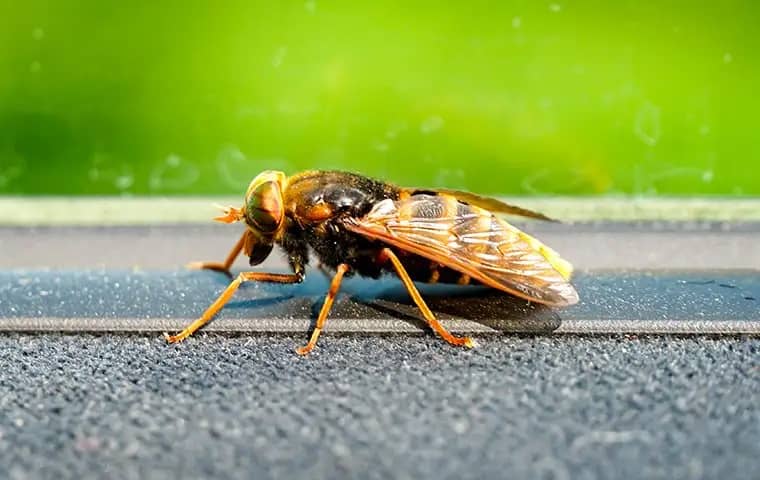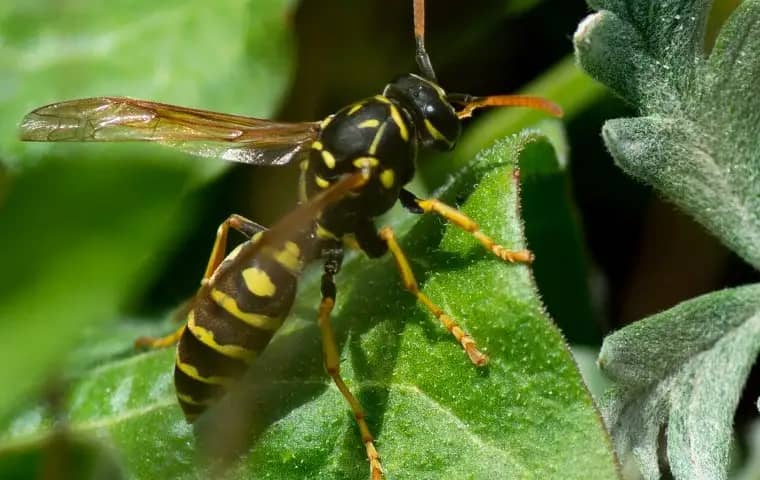How To Stay Safe From The Hornets In Jacksonville
What insect has the most painful stinging? While it might depend on who you ask, many people will tell you it’s the hornet, one of the worst stinging insects in Jacksonville. Here’s what local residents should know about some of the lesser-known hornet facts, how to tell if you’re allergic to stings, how long hornets live, and the best form of stinging insect control with pest control in Jacksonville.
Five Lesser Known Facts About Hornets In Jacksonville
You may already be a little familiar with hornets, but here are some interesting facts you may not know about these insects:
- Although hornets are a subspecies of wasps, which are typically aggressive, most hornets are gentle giants. Most hornets are not aggressive and will only attack or sting if they’re defending their nest.

- Hornets like to nest underground. While this can depend on the type of hornet, many species prefer to build their nests under decks, roofs, tree stumps, or inside old rodent burrows.
- Hornets may not be aggressive, but their sting can be dangerous. Given their size and how much venom they hold, getting stung by a hornet tends to be painful as well as dangerous.
- Hornets are a delicacy in certain parts of the world, including Japan. Hornets may end up on your plate when they aren’t trying to sting you, depending on where you live. In certain villages in Japan, hornets and hornet larvae can be eaten raw or fried.
- You may know that hornets are big, but did you know that they’re five times bigger than the average honeybee?
These are some of the lesser-known facts about hornets, but what about the need to know facts?
How To Tell If You Are Allergic To Hornet Stings
Hornet stings can be dangerous for anyone, but they can turn deadly if you’re allergic. While pain and swelling can be normal after a hornet sting, these symptoms should subside for someone who’s non-allergic. Here are some warning signs that you may be allergic to a hornet sting:
- The swelling and redness from a sting do not subside after a few hours and continue to get worse.
- The swelling begins to spread to other parts of your body, or you start breaking out in hives.
- You start experiencing nausea or stomach cramps.
- You start feeling faint or dizzy after the sting.
- Your throat, nose, or face begins to swell.
- You start wheezing or your voice gets hoarse.
- You begin having trouble breathing.
If you experience any of the symptoms listed above, you should always seek medical attention immediately. Whether the allergy is life-threatening or not, you’ll still need care from a doctor.
How Long Do Hornets Live?
A stinging insect’s lifespan can vary from species to species, but what about hornets? Most ordinary hornets live around 12 to 22 days, although the colony’s queen can survive up to a full year in the right conditions.
Keep in mind that hornets don’t endure the cold very well. While Jacksonville is known for its mild winters, these stinging insects usually don’t last through the winter. If you spot a nest during the winter, you still should not try and approach the nest, even if you think it’s abandoned or the hornets have died.
The nest may be more active than you think, and like many stinging insects, hornets will attack in swarms to protect their nests. When one hornet dies, it releases a pheromone that signals to other nearby hornets that it needs aid. What may seem like one hornet can quickly turn into dangerous combat with an entire group of hornets.
Stinging Insect Control For Jacksonville Residents
As mentioned above, it’s never a good idea to try and deal with hornets on your own, regardless of the time of year. Any stinging insect, whether a wasp or a hornet, poses a danger to both allergic and non-allergic people. If you think your property has a stinging insect problem, it may be time to call in Trad’s Pest Control professionals.
With experience that goes back decades, we’ve got the gear and the training to safely remove stinging insects and stinging insect nests from your Jacksonville property. If you think you may have a hornet nest in your home or near your home, there’s no time to wait – contact us today at Trad’s Pest Control to learn more about how we can help you.

